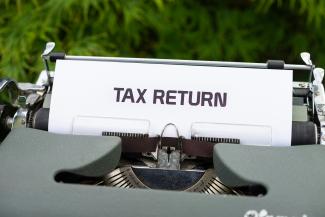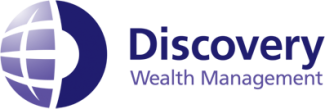
Did You Get a Big Tax Refund?
Did You Get a Big Tax refund?
With April 30th behind us (CRA’s deadline for filing taxes), many of you are receiving your Notice of Assessment from CRA confirming the details of your tax return. Depending on what side of the fence you were on this year, you might be happy or sad! In either case, I find that this is a great time to evaluate your financial situation, cash flows, and make some adjustments for the 2025 tax year so that you don’t repeat this cash flow hiccup next tax season.
Why is a Refund a Problem?
You might be wondering why it would be a problem to receive a large refund. If you received a refund, that means that you over-paid your taxes in 2024. If you overpay your taxes, you are essentially lending CRA money interest free until the time CRA returns it to you after you file your tax return! Many people that receive refunds regularly are unaware that they are overpaying their taxes throughout the year, and do not realize they can reduce the taxes they pay on an ongoing basis to avoid giving CRA too much of their money. The most common way people overpay taxes is through the source deductions on their paycheques. This happens as a result of employers being obligated to withhold a certain percentage of your income to prepay the projected taxes that you will need to pay based on that income. If you are in a situation where you have many tax deductions you regularly claim each year, you can request that your employer reduce the taxes they send to CRA to account for those deductions so that the taxes you pay each payday are more reflective of your real tax situation.
In order for your employer to make those changes for you, your employer needs you to itemize the tax deductions you utilize each year. The deduction list includes expenses such as:
- Regular RRSP contributions you make
- Child Care Expenses
- Spousal/Family support payments
- Medical Expenses
- Donations to Charities
CRA Form #T1213 details all the expenses that are eligible to reduce your taxes at source and also needs to be completed if you want to take advantage of your entitled tax deductions. By taking advantage of this form, you can potentially increase your take home pay, but of course reduce your refund at tax time. If you qualify, this is a good strategy to take advantage of as it will improve your cash flow throughout the year so that you can make better immediate use of your cash instead of waiting for a future refund.
If you have immediate access to your cash, you can do things to make that cash work harder for you throughout the year. Why let CRA keep your money when you could potentially use that money to improve your financial or personal life by:
- Saving interest costs by paying down your debt/mortgage
- Earn money sooner by making TFSA contributions
- Get government grants immediately on your RESP contributions
- Start funding your next vacation!
It’s always better to keep your money in your hands as opposed to giving it to someone else on an interest free basis!
What If You Owe a Large Tax Bill?
If you are in a position where your tax bill was unexpectedly higher than usual, then you likely realized income in 2024 which you did not pay enough tax on at the time. This is usually the result of one of two situations:
- A tax event such as a capital gain on the sale of a non-registered investment.
- Self-employed individuals with higher-than-expected income that did not pay enough tax throughout the year.
In situations like these, CRA will be proactive and request that you submit more taxes to them directly on a regular basis. They operate under the assumption that your income situation will continue into the future and therefore must submit the required taxes based on those assumptions. If your income situation was a “one-off” situation, there are ways to avoid paying the additional future tax installments, but we would recommend that you consult with CRA and/or your tax professional before making any adjustments.
When filing your taxes, your goal should be neither to owe tax nor receive a refund, that means that you have paid your expected amount of tax throughout the calendar year. In order to accomplish this, it only requires a small amount effort in terms of projecting your expenses. However, this small effort is rewarded by the fact that you will be in a better position to plan financially as you will be confident in your decisions that no surprises will be sprung on you at tax time.

